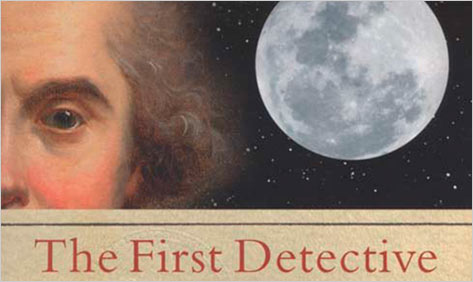
Genius – The Life and Science of Richard Feynman by James Gleick was a good first course for those fascinated by Richard Feynman’s significant contributions to physics, cosmology (and percussion).
Now, eight years later come two more biographies that observe Richard Feynman from very different perspectives, reviewed in the New York Review of Books. The first, Lawrence Krauss’s book, Quantum Man is the weighty main course; the second, by Jim Ottaviani and artist Leland Myrick, is a graphic-book (as in comic) biography, and delicious dessert.
In his review — The ‘Dramatic Picture’ of Richard Feynman — Freeman Dyson rightly posits that Richard Feynman’s star may now, or soon, be in the same exalted sphere as Einstein and Hawking. Though, type “Richard” in Google search and wait for its predictive text to fill in the rest and you’ll find that Richard Nixon, Richard Dawkins and Richard Branson rank higher than this giant of physics.
[div class=attrib]Freeman Dyson for the New York Review of Books:[end-div]
In the last hundred years, since radio and television created the modern worldwide mass-market entertainment industry, there have been two scientific superstars, Albert Einstein and Stephen Hawking. Lesser lights such as Carl Sagan and Neil Tyson and Richard Dawkins have a big public following, but they are not in the same class as Einstein and Hawking. Sagan, Tyson, and Dawkins have fans who understand their message and are excited by their science. Einstein and Hawking have fans who understand almost nothing about science and are excited by their personalities.
On the whole, the public shows good taste in its choice of idols. Einstein and Hawking earned their status as superstars, not only by their scientific discoveries but by their outstanding human qualities. Both of them fit easily into the role of icon, responding to public adoration with modesty and good humor and with provocative statements calculated to command attention. Both of them devoted their lives to an uncompromising struggle to penetrate the deepest mysteries of nature, and both still had time left over to care about the practical worries of ordinary people. The public rightly judged them to be genuine heroes, friends of humanity as well as scientific wizards.
Two new books now raise the question of whether Richard Feynman is rising to the status of superstar. The two books are very different in style and in substance. Lawrence Krauss’s book, Quantum Man, is a narrative of Feynman’s life as a scientist, skipping lightly over the personal adventures that have been emphasized in earlier biographies. Krauss succeeds in explaining in nontechnical language the essential core of Feynman’s thinking.
… The other book, by writer Jim Ottaviani and artist Leland Myrick, is very different. It is a comic-book biography of Feynman, containing 266 pages of pictures of Feynman and his legendary adventures. In every picture, bubbles of text record Feynman’s comments, mostly taken from stories that he and others had told and published in earlier books.
[div class=attrib]More from theSource here.[end-div]
[div class=attrib]Image courtesy of Shelley Gazin/Corbis.[end-div]

 A new book by James Morton examines the life and times of cross-dressing burglar, prison-escapee and snitch turned super-detective Eugène-François Vidocq.
A new book by James Morton examines the life and times of cross-dressing burglar, prison-escapee and snitch turned super-detective Eugène-François Vidocq.